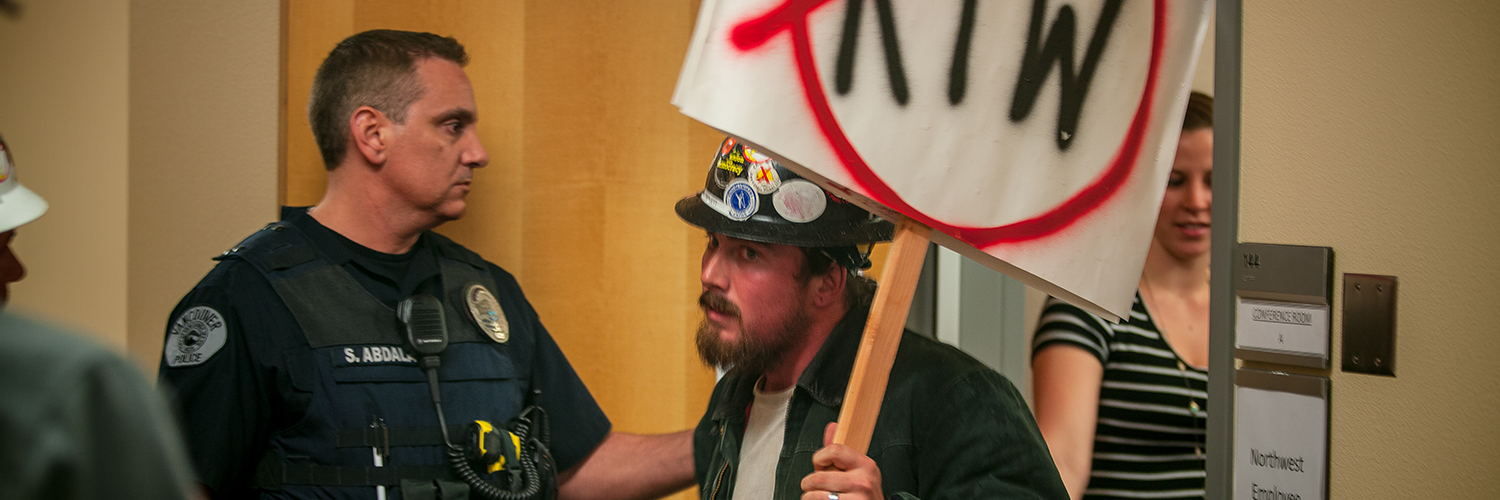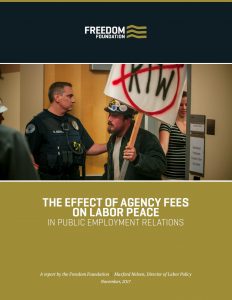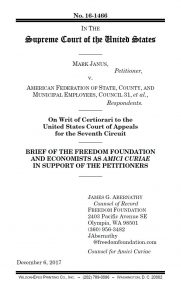In just a few months, the U.S. Supreme Court will decide Janus v. AFSCME Council 31 and determine whether public employees may be required to pay agency fees to a government union as a condition of employment.
If the court rules in favor of plaintiff Mark Janus, it will effectively extend right-to-work protections to all public employees nationwide and allow them to make their own decisions about whether to join and financially support a union.
The case is expected to be argued in late February and decided in late June.
This week, the Freedom Foundation released a new report which formed the basis of an amicus brief also submitted by the Foundation this week to the Supreme Court in support of Janus’ position.
One of the union legal defenses of agency-fee requirements contends that they promote “labor peace” among public employees, an important government interest.
However, an analysis of two federal databases of strikes and work stoppages — one from the Bureau of Labor Statistics (BLS) and one from the Federal Mediation and Conciliation Service (FMCS) — finds that states requiring public employees to pay agency-fees to government unions experience greater labor unrest than “right-to-work” states in which agency-fee requirements are banned.
The BLS data-set indicates government workers in states that allow agency-fee requirements go on strike at 27 times the rate of public employees in right-to-work (RTW) states. Examination of the larger FMCS data-set confirms these findings, indicating that, while the average number of striking employees was essentially the same, public employees in agency-fee states went on strike at more than 17 times the rate of and for twice as long as government workers in RTW states. The same general trends hold when all strikes in both the public and private sectors are examined, though the disparity between the strike rates in RTW and agency-fee states is smaller.
Additionally, analysis of Gallup survey data indicates that public employee engagement at work tends to be significantly higher in RTW states than in agency-fee states.
Consequently, as the Foundation argues in its amicus brief, the most comprehensive evidence collected to-date indicates that, should the Supreme Court decide to extend right-to-work protections to all public employees in Janus, it may do so without fear that its actions will measurably disrupt “labor peace.”
Two local economists — Moheb Ghali, Professor Emeritus of Economics at Western Washington University, and Douglas Wills, Associate Professor of Economics at the University of Washington, Tacoma, joined the Foundation in filing the brief.
Copies of the full report and amicus brief are available below.











